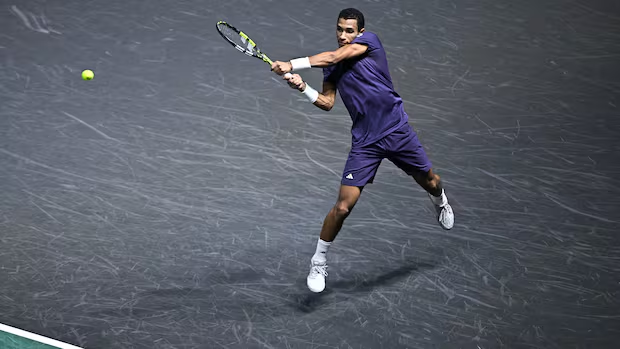‘Absolutely heart-wrenching’: McGill student-athletes demand answers after batch of varsity teams cut

Justin Mazzella feels like McGill’s student-athletes have had the rug pulled from under them – and he wants some definitive answers.
Mazzella, one of the captains on the McGill track and field team, is one of hundreds of student-athletes left shocked after the university’s overhaul of its athletics program.
McGill announced last week it was cutting 25 varsity team and clubs across 15 sports – like track and field, women’s rugby and badminton – citing budget, personnel and facility space constraints.
“We’ve gone multiple times to get a lot of help to try to clarify some of these points,” Mazzella told CityNews Monday. “And we’ve just really not been satisfied with the arguments that they’ve given us. It’s really a shock and it really hurts. It really hurts such a big part of our lives and being dropped out with not much closure and understanding to the real decisions behind it.”
Mazzella says the varsity teams, including track and field, were poorly consulted.
“We didn’t really have much insight on some of the decisions being made,” he said. “And it comes as a shock to a program that’s been around for 126 years and that’s home to a lot of elite athletes and a lot of Olympic performers who’ve come from this program.
“McGill track is one of the founding teams of track and field in Quebec. So it’s everything.”
A McGill track and field sweater. (Gareth Madoc-Jones, CityNews)
That feeling of being “left in the dark” was shared by Allan Swetman, the head coach of the McGill Martlets women’s rugby team. He says the university’s decision-making process remains shrouded in ambiguity.
“We don’t really have much information about where we scored on sections, and we’re not even clear on which sections they were looking at,” said Swetman, who’s also served as head coach of the Westmount Rugby Club. “So just disappointed and confused is the main thing.
“McGill keeps talking about being really transparent, but we don’t even know who was on this panel that made the decision, and as a team, we weren’t even allowed to present our case to them in person.”
A McGill women’s rugby game in this undated photo. (Courtesy: Thomas Dinh)
‘Fostering excellence in university sport’
McGill Athletics and Recreation announced the cuts in a statement Thursday, saying it determined its “current structure was no longer sustainable” following “an extensive internal and external review of our operations.” It added the decision will ensure its “long-term sustainability and excellence.”
“Simply put, our unit can no longer effectively manage or support the same number of activities while maintaining the standards of excellence expected at McGill,” the statement reads.
Sports that will not be returning for the 2026-27 academic year: men’s baseball and volleyball; women’s rugby, lacrosse and field hockey; and men and women’s badminton, fencing, logger sports, Nordic ski, sailing, figure skating, golf, squash, tennis, and track and field.
The returning sports are: men’s lacrosse, rugby and football; women’s flag football and volleyball; and men and women’s artistic swimming (co-ed), basketball, cheerleading (co-ed), cross-country, hockey, rowing, soccer and swimming.
“As lifelong advocates for sport, we recognize how difficult this moment is, particularly for those of our students, athletes and staff who will not return to competition,” the McGill statement continues.
“We remain dedicated to providing high-quality competitive and recreational opportunities for students and to fostering excellence in university sport at McGill. We understand that many of the clubs and varsity teams affected will have additional questions, and we welcome the opportunity to meet and discuss their concerns.”
Economics professor Moshe Lander says the decision is disappointing but “unsurprising.”
“Post-secondary institutions across Canada are under immense cost pressures and we’re seeing closures of departments. We’re seeing closures of campus. At some point, closures of sports is going to happen as well,” said Lander, who teaches at Concordia.
“Where everybody is looking at the loss of international students and the revenue that generates, there’s an additional cost that’s falling on the Quebec universities. They have to deal with it in their own way and McGill has chosen that one way to do it is to cut costs through the sports teams.”
Women’s sports programs ‘disregarded’?
Looking at the list of teams that were cut, Swetman is questioning McGill’s dedication to growing women’s sports. The rugby coach says three of the teams getting the axe are the ones with the most female athletes: track and field, women’s rugby and women’s field hockey — more than 100 female student-athletes combined.
“It just seems that McGill speaks a big game about equity, but they aren’t actually living it in their actions,” Swetman said. “Women’s sport don’t get the recognition that it deserves at McGill.
“The time is now for women’s sport, and if you’ve done any research into equity, you know that it’s not just about the amount of students that you have, but it’s about the funding and the history of funding that’s gone into women’s sports. And that to be able to compete against male sports, the funding needs to be at least equal, if not a little bit more, for female sports.”
Martlets rugby player Kipling Szasz, a first-year-rookie, says she emailed the director of McGill’s varsity sports program looking for statistics on the ratio of women to men affected by the cuts.
“I have not heard anything back about that,” Szasz said. “We are trying to find data about that, because it does feel to a lot of us that women’s programs were not kept in mind, and that the women’s sports programs just were disregarded.”
The McGill Martlets women’s rugby players. (Courtesy: Thomas Dinh)
Students already thinking of transferring
McGill Athletics and Recreation says the decision about which varsity teams to cut and which to keep was partly informed by the new Réseau du sport étudiant du Québec (RSEQ) sport model, competitive viability, recruitment pools, and resource requirements.
That has Mazzella wondering why track and field didn’t make the cut.
“A lot of the criteria involves being a sport that competes in RSEQ and also participates in youth sports, both of which track and field does fulfill,” the runner said. “There are a lot of other (criteria), it’s all very technical. … And we just feel from our subjective point of view, obviously the student body in track and field really believes that track and field ticks a lot of boxes. And it’s unprecedented to cut track and field without substantial evidence or real driving reasons to do it.”
McGill track and field team. (Submitted by: Justin Mazzella)
Mazzella says several student-athletes on McGill’s track team – many of whom are there on scholarships – may not have even attended the prestigious Montreal university had it not been for the track program.
“We also had a lot more options around Canada and other countries to get the best of both worlds and really to be deep into our careers and academics,” said Mazzella, who is a third year microbiology and immunology student. “For this to just come to a halt, it’s absolutely heart-wrenching.”
That was confirmed by Szasz, who says she’s already thinking of transferring and knows people who are considering doing the same.
“I don’t think McGill Athletics knows how much potential we have,” Szasz said. “We have athletes such as myself who turned down top universities such as UBC, UVic. There’s other people who turned down UOttawa to come here and to have it taken away. We’re thinking of transferring.
“I came here under the expectation that I would play for the rest of my degree, but to have it taken away from me my first year was very disheartening.”
Impact of sports on young athletes
Mazzella says the sport has changed him as a person.
“It’s brought me so much further in life,” he said. “Some really important things about track is that it’s co-ed. So, the men and the women, we all train together, we compete under the same roof. It’s also extremely inclusive. I’ve seen people from all corners of the world and all types of people. This sport is inclusive to para-athletes. You know, we really get to share a lot with a lot of people.
“And I think getting rid of that, not only for the athletes is detrimental, but also for the university, who prides itself on having a lot of inclusivity and diversity.”
McGill track and field team. (Submitted by: Justin Mazzella)
Swetman says rugby is about more than the play on the field; it’s about teaching important values that last a lifetime.
“It’s one of the things that rugby is known for, is how the players and the coaches treat referees. It’s a sport where there’s a lot of respect on both sides,” he said. “And our team is known for being really resilient. We don’t get the same amount of funding as some of the other programs, and our field times are always late. We’re mostly finishing at 11 o’clock at night, and then the students are having to go to class in the morning. And so they show a lot of resilience.
“It takes a lot to be able to withstand a hit and get back up and do it again. And you know, they do that all season long, and over 80 minutes, and they get hit multiple times, and they get back up. And I don’t know, they’re just a really great group of young women who protect each other on the field and they really support each other off it. It’s a really great team.”
What does the future hold?
McGill’s decision has now created a heap of questions for the athletes’ futures.
“Our current season hasn’t been cancelled,” Mazzella explained. “We only really get removed from the varsity body effective next year. So I think this has really rallied the team to come much closer together to not only perform much better, to have each other’s backs during these hard times. And I don’t doubt that it’s gonna be a memorable season, but we hope it’s not the last.”
Mazella says the athletes are not going down without a fight.
“We’re doing a lot of outreach, trying to get to big major voices who could try and maybe convince the athletic body at McGill to maybe come to a compromise or even reverse the decision because we can’t do it on our own and it’s been super supportive.”
The McGill women’s rugby team is looking into what it would mean to become a Students’ Society of McGill University (SSMU) club, instead of a varsity team, and it started a petition that’s been signed by more than 4,000 people in less than a day.
But ultimately, the athletes want McGill to reverse its decision and reinstate them as a team.
“Being students is important, but being student-athletes is amazing, and I think it’s such a small population, but we are really dedicated, and who knows, you could have future Olympians here,” Szasz said. “This is a chance to make a legacy, and they just disregarded that.”
“I just hope that McGill thinks about this decision,” added Swetman. “They’re a world-class institution, and to be a world-class institution, you need to put both male and female students first. And I feel like this decision just really undercuts that message.”





